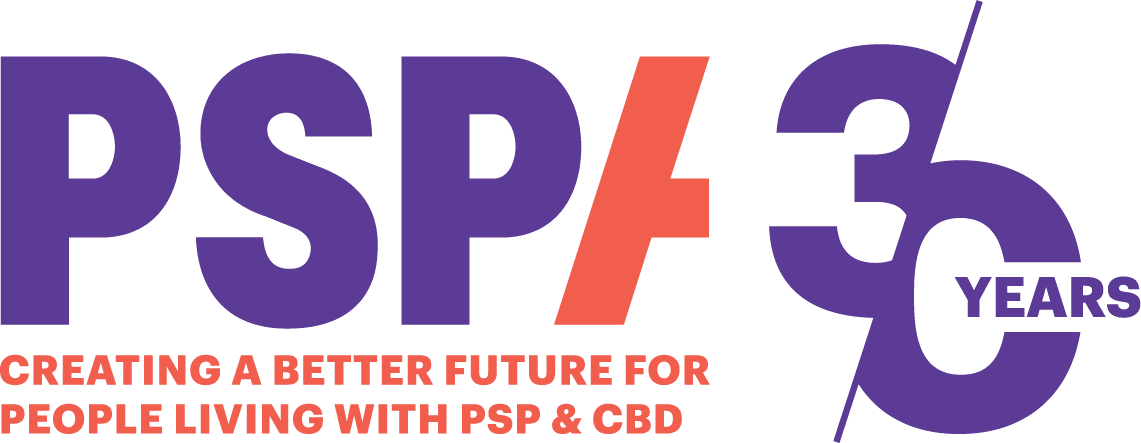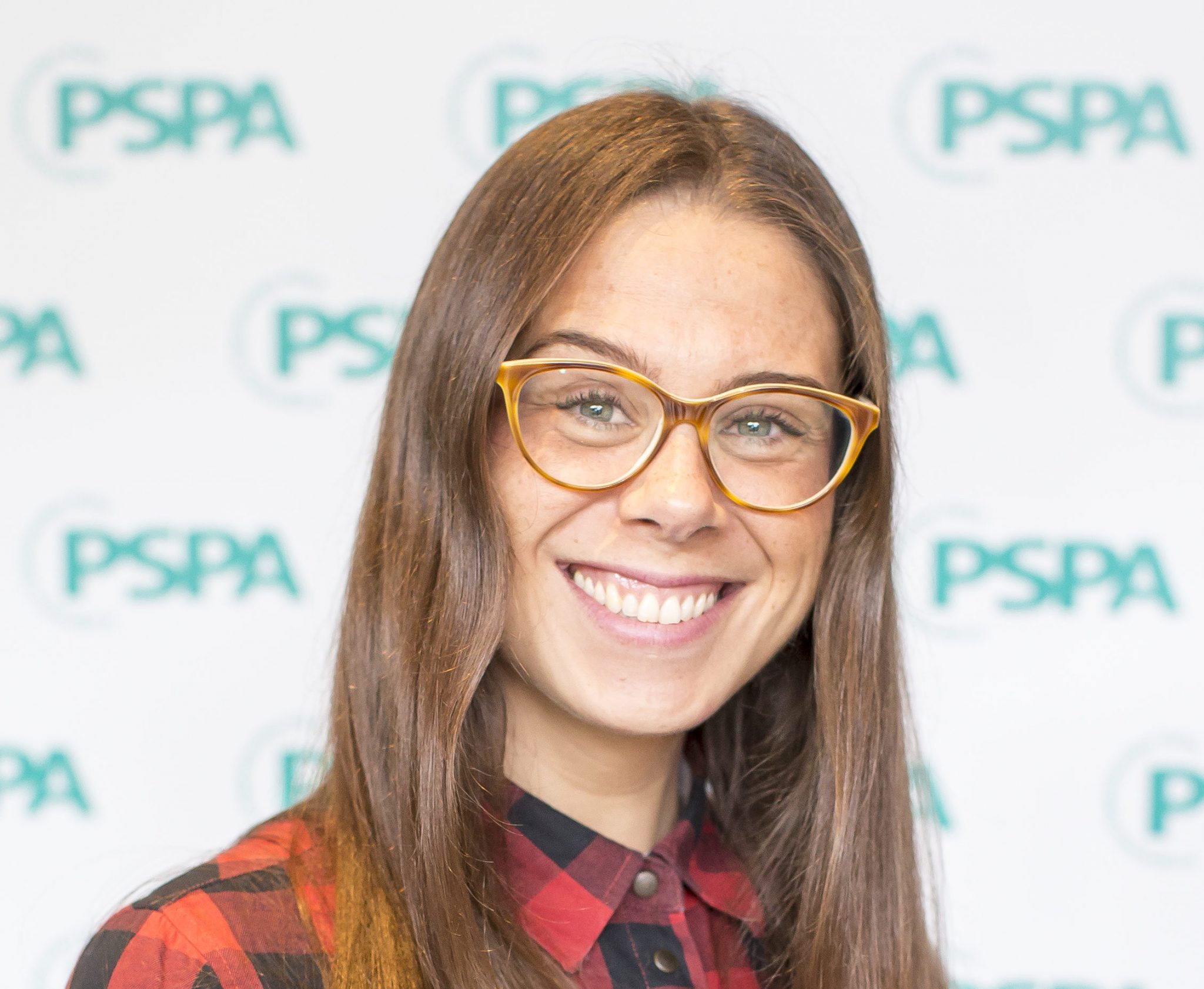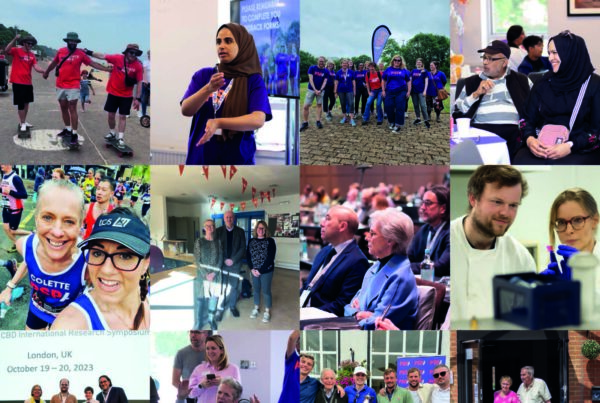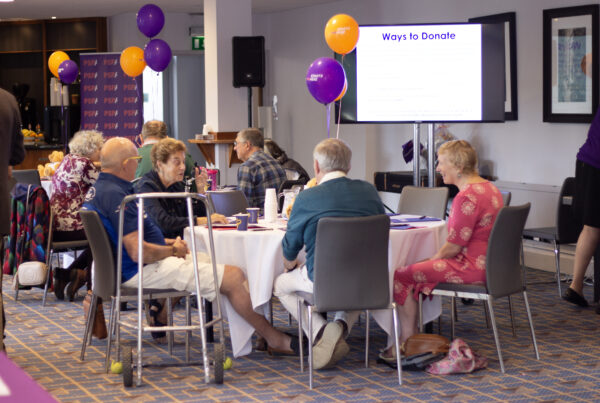Patricia Vazquez Rodriguez is working on Prof James Rowe’s PSPA -funded project, carrying out special brain scans to visualise the disease-associated protein tau in people with PSP. In her first guest blog, Patricia introduces herself and tells us about life in the research world.
[row] [column md=”6″]
Hola,
My name is Patricia but I prefer to be called Patri by all of you. Patricia is too formal and according to my parents… I am not. I am currently writing my first year report for my PhD in the Department of Clinical Neurosciences at University of Cambridge. Let me tell you something: it’s not an easy thing to do! I have been in Cambridge for almost nine years and every day I like it more. I am from Spain. Yes… this country where the sun is out all day long and our national sports are football and ‘siesta’ (I think you guys called it ‘nap’). I can assure you that despite our reputation, we only do ‘siesta’ for 20 minutes and it is not every day. Believe me: our economic crisis is due to other different matters.
A year ago, Professor James Rowe offered me the opportunity to work on the research project MAPT-PSP as my 3 year PhD course. The primary aim of this exciting project is to establish a clearer picture of the role of a protein called tau. As probably some of you already know, it is highly involved in PSP, CBD and related conditions. Obviously to achieve this, a lot of steps must be taken and a lot of patience is needed. These steps are the reason why I am in research. It is a proper adventure, similar to a rollercoaster, you experience any possible emotion. My favourite? That it is unbelievably self-fulfilling…
One recent example was in November when I presented my research project and its preliminary results at the PSPA Friends & Family meeting in Bristol with my teammate Dr Richard Bevan-Jones. The event represented each key piece of the challenging PSP puzzle: people with PSP, carers and relatives, clinical and research crews, even a chef! Also a very cool photographer memorably documented the day through her eye and camera. In my opinion, it was a real success. All of us who attended know that this achievement was hugely attributable to the great work from an enthusiastic organisation and a team of hard working yet still smiling volunteers. It was a unique occasion where all of us united because we have something very important in common: achieve a better understanding of these neurodegenerative conditions that cause significant distress for the people who suffer from them and those around them. I learned a lot from the session and I hope I delivered half of what I took home with me.
[/column] [column md=”6″]I am also very grateful to be able to share with some of you the latest updates on one of our main projects in PSP. I feel I have the commitment (and amazing pleasure) to let you know about what we are doing in our lab. We are really driven to make a breakthrough in these devastating disorders, especially because we are very aware of their implications for everyone involved. I can tell you that at the Hershel Smith Building in Cambridge, there is a highly motivated multidisciplinary team that wants to support you through its everyday work.
As part of another important research project run in our lab, I had the opportunity to assist Dr Ian Coyle-Gilchrist in his PiPPIN study, which you may already have heard about. Its primary aim was to identify the symptoms and prevalence of PSP, CBD and related conditions. Ian and our colleague Claire Lansdall (another PhD student) are currently analysing this data so watch this space! My involvement in the PiPPIN study was the first contact with PSP and CBD patients. I have to say that I was staggered by the complexity and severity of the symptoms. I knew these conditions existed but I have to admit that my knowledge was not to the extent of more common conditions such as Parkinson’s or Alzheimer’s diseases for instance. These unique disorders immediately caught my attention and I have since been closely involved in working towards learning more and gaining a better understanding of them.
Part of my project is funded by PSPA (to which I will be eternally grateful!). To everyone afflicted with this condition as well as family, friends and the general public who are keen to lend a hand: everyone’s help counts. Participating specifically in my project, which is measuring the critical tau pathology in PSP patients, involves visiting Cambridge to undertake some psychology tasks, attend a couple of brain scan sessions (MRI and PET) and gift a blood sample. I believe that all these measures together will have a large impact on PSP research, for clinical trials and for studying the early stages of PSP when there is arguably most to be gained by therapy.
So far, I am amazed with the positive response the study is having. Despite your illness, you guys are still making a great effort in order to help us out… Muchas gracias!!!
I hope to see you all very soon,
Patri
[/column] [/row]




